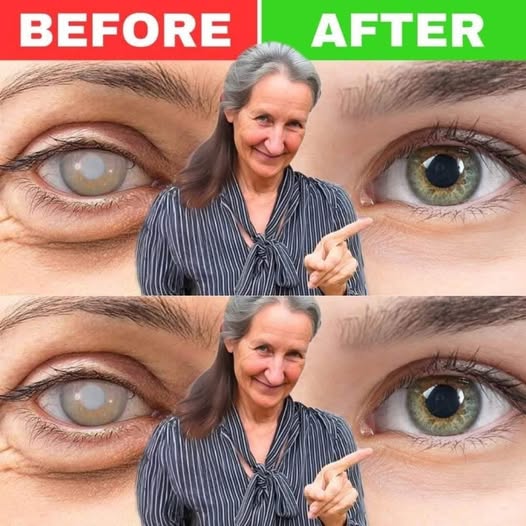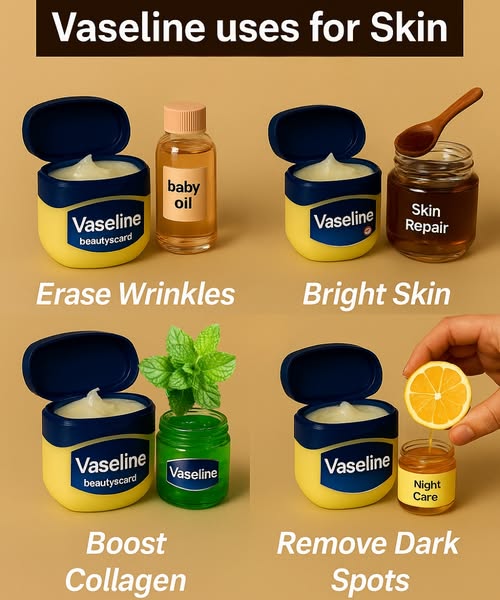Introduction

Your eyes are one of your most valuable assets, yet they often don’t receive the care they deserve. In an era dominated by screens, pollution, and stress, maintaining optimal eye health naturally is more critical than ever. But can you really improve your vision and eye health without relying solely on glasses, contacts, or surgery?
The answer is yes! A holistic approach to natural eye care can help protect your vision, reduce strain, and prevent common eye diseases. This guide will explore ten science-backed strategies to enhance your eyesight naturally.
1. Eat Vision-Boosting Foods
The phrase “you are what you eat” applies to your eye health too. A diet rich in essential nutrients can prevent age-related vision issues like macular degeneration and cataracts.
Key Nutrients for Eye Health:
- Vitamin A: Found in carrots, sweet potatoes, and leafy greens, it prevents night blindness.
- Lutein & Zeaxanthin: Present in spinach, kale, and eggs, these antioxidants filter harmful light.
- Omega-3 Fatty Acids: Found in salmon, flaxseeds, and walnuts, they reduce dry eyes and inflammation.
- Vitamin C & E: Found in oranges, almonds, and sunflower seeds, they protect against oxidative damage.
Pro Tip: Add a handful of nuts and berries to your daily routine for an easy vision boost!
2. Follow the 20-20-20 Rule
In today’s digital world, computer vision syndrome (CVS) is a growing problem. Staring at screens for long periods can lead to dry eyes, headaches, and blurred vision.
Solution: The 20-20-20 Rule
Every 20 minutes, look at something 20 feet away for at least 20 seconds. This simple trick helps relax your eye muscles and prevents digital eye strain.
Bonus Tip: Blink frequently to keep your eyes moisturized while working on screens.
3. Stay Hydrated to Prevent Dry Eyes
Did you know dehydration can directly impact your eye health? Your eyes rely on tears to stay lubricated, and insufficient water intake can lead to dryness, irritation, and blurred vision.
How Much Water Do You Need?
- Women: At least 2.7 liters (91 oz) per day
- Men: At least 3.7 liters (125 oz) per day
Pro Tip: Include water-rich foods like cucumbers, watermelon, and oranges in your diet for extra hydration.
4. Practice Eye Yoga for Stronger Eye Muscles
Eye exercises, or eye yoga, can improve focus, relieve strain, and even strengthen your eyesight.
Simple Eye Exercises to Try:
- Palming: Rub your hands together and place them over your eyes for warmth and relaxation.
- Blinking Exercise: Blink rapidly for 10 seconds to refresh your eyes.
- Focus Shifting: Hold a pen at arm’s length, focus on it, and slowly bring it closer.
Consistency is key—practice these exercises daily for best results.
5. Get Quality Sleep for Optimal Vision
Sleep deprivation can lead to red eyes, dark circles, and even long-term damage to your eyesight. During sleep, your eyes undergo essential repair and rejuvenation processes.
Tips for Restful Sleep:
- Avoid screen exposure 1 hour before bed.
- Use blackout curtains to create a dark sleep environment.
- Maintain a consistent sleep schedule.
Aim for 7-9 hours of sleep per night to keep your eyes well-rested.
6. Use Blue Light Protection
Excessive blue light exposure from screens can disrupt sleep patterns and contribute to eye strain.
Ways to Reduce Blue Light Exposure:
- Use blue light blocking glasses while working on screens.
- Enable night mode on your phone and laptop.
- Take regular breaks to rest your eyes.
Protecting your eyes from blue light can improve sleep quality and reduce fatigue.
7. Avoid Smoking & Limit Alcohol
Smoking is one of the leading causes of cataracts and macular degeneration, while excessive alcohol intake depletes essential eye vitamins.
Did you know? Smokers are twice as likely to develop blindness compared to non-smokers!
Quitting smoking and limiting alcohol can drastically improve your overall eye health.
8. Protect Your Eyes from UV Rays
Harmful UV rays from the sun can accelerate eye aging and increase the risk of cataracts.
How to Shield Your Eyes:
- Wear UV-blocking sunglasses outdoors.
- Use wide-brimmed hats for extra protection.
- Avoid direct sunlight exposure between 10 AM – 4 PM.
Pro Tip: Always check the UV400 label when buying sunglasses.
9. Keep Your Hands & Lenses Clean
Touching your eyes with unwashed hands can lead to infections like pink eye and corneal ulcers.
Eye Hygiene Checklist:
- Wash your hands before touching your eyes.
- Clean your glasses and contact lenses daily.
- Avoid rubbing your eyes excessively.
Following proper hygiene practices can prevent eye infections and irritation.
10. Regular Eye Check-Ups are a Must!
Even if you have perfect vision, scheduling annual eye exams is essential. Early detection of conditions like glaucoma and diabetic retinopathy can prevent severe vision loss.
How often should you visit an eye doctor?
- Ages 20-39: Every 2 years
- Ages 40-64: Every 1-2 years
- 65+ or High Risk: Annually
Don’t wait until you notice problems—prevention is always better than cure!
Conclusion
Taking a holistic approach to eye care can help maintain sharp vision and prevent future complications. By incorporating nutrient-rich foods, protective habits, and regular eye care, you can naturally enhance your eyesight and overall well-being.
Start today—your eyes will thank you later!


